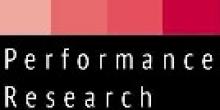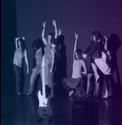Call for Proposals - ‘On Repair’

Issue Editors
Helena Grehan (Murdoch University) and Peter Eckersall (The Graduate Center, City University of New York (CUNY))
Proposal deadline: 31 July 2020
The year 2020 should be seen as the year when human history dissolved—not because human beings disappear from planet Earth, but because planet Earth, tired of their arrogance, launched a micro-campaign to destroy their Will zur Macht (Will to power).
The Earth is rebelling against the world, and the agents of planet Earth are floods, fires, and most of all critters. (Berardi 2020)
Drawing on Donna Haraway’s Staying with the Trouble the critters Berardi refers to here are ‘small playful creatures who do strange things, like provoking mutation. Well: the virus’ (Berardi 2020).
In this issue we contemplate what comes after the year 2020 and its critters. We find that we inhabit a landscape that is scorched, parched, drowned and infected. One that is perhaps, if we concur with Berardi, fed up of us and beginning to fight back. What might the value be, if indeed there is any value, in repairing things in this context? What could we humans do to ‘repair’ the world?
Stay-at-home directives in so many places around the world have shown us a reality of what less human intervention looks like. This led to some improvements—cleaner air, more space for animals, daily walks, less vacuous consumption—but this reality and its consequences has not been shared equally among us. COVID-19 made starkly visible the underlying conditions of structural precarity. How do we think about ideas of repair in light of this? Specifically, can creative practices and the imagination do something? Berardi (2020) calls for ‘[t]hought, art, and politics… no longer… as projects of totalization [but] of proliferation without totality’. How might we, as performance scholars and practitioners, make sense of this idea? What kinds of work should we make, respond to, or perhaps avoid if we are to activate Berardi’s call for ‘thought, art and politics’?
According to the Oxford English Dictionary (OED), ‘repair’ means ‘the action of repairing a damaged, worn, or faulty object or structure by replacing or fixing parts. Also: the fact or process of keeping something in good condition in this way; maintenance, upkeep’. If we take the second part of the meaning here, then we have already failed it seems. We have failed to keep anything ‘in good condition’ to carry out the regular ‘maintenance’ that is needed to ensure that things work properly, to keep things in ‘good’ repair, to the extent that now perhaps the act of repairing would be futile. Have we gone beyond repair? Repairing was, or so it seems, something we should have been doing all along—if we are now inhabiting a broken planet that was rendered so by our inaction and by—some would argue—a form of capitalism gone feral. If the end stage of capitalism is, as Jodi Dean (2020) states, a condition of ‘neofeudalism’, then what is there left to do? Even if we could repair, would we want to? What is there to fix?
We could argue that it is crucial to fix the planet, the geological and ecological structure on which life rests. In doing so we might stake a claim for humanity and refuse the dissolving that Berardi argues is underway. We could try to calm the fires, to eradicate the virus and to stop the floods, but if we were to do this would it require a radical rethinking of the very fabric that is worn? Can we repair the planet and at the same time return to the capitalist status quo? Or, is it only by jettisoning that system that we might be able to engage in any meaningful acts of repair? Is there something in-between or are these options our only ones? And, again, can we expect any meaningful interventions from performance and performance studies? Timothy Morton argues, ‘art is thought from the future’ (2016: 1) but what kinds of artistic thinking should this be and what kinds of artistic thinking should be resisted?
We invite essays, manifestos, theoretical and critical reflections, images, documents and creative works that respond to this uncomfortable status quo of our own making. Topics might include but are not limited to:
- The futility of return, imagining new futures
- Kintsugi—the art of repairing broken objects with filaments of precious metals
- Digital salve for the scorched soul: acts of performative care as a way of repair
- Mending things
- Creative acts that do nothing or displace human activity
- Aesthetics of/and emptiness
- Repairing the arts
- Bodies, senses and sensualities as repair
- Repair for whom? Class, identity and repair
- Repairing collective action and solidarity
- Thinking about obsolescence
- Tragedy as repair
- Countercultures and performance
- Environmental restoration: being different with the planet
- Beyond repair: necropolitics and herd immunity
Performance Research also invites short reviews (approximately 750 words) of recent books, performances, conferences or other forms related to the theme. For title proposals and suggestions related to ‘On Repair’, contact our Reviews Editor, Anna Jayne Kimmel, at reviews@performance-research.org.uk
References
- Berardi, Franco (2020) ‘Beyond the breakdown: Three meditations on a possible aftermath’, e-flux, 31 March, https://conversations.e-flux.com/t/beyond-the-breakdown-three-meditations-on-a-possible-aftermath-by-franco-bifo-berardi/9727
- Dean, Jodi (2020) ‘Neofeudalism: The end of capitalism?’, LA Review of Books, 12 May, https://lareviewofbooks.org/article/neofeudalism-the-end-of-capitalism/
- Haraway, Donna (2016) Staying with the Trouble, Durham, NC: Duke University Press.
- Morton, Timothy (2016) Dark Ecology: For a logic of future coexistence, New York, NY: Columbia University Press.
Schedule
Proposals: 31 July 2020
First Drafts: 1 November 2020
Final Drafts: January 2021
Publication: June 2021
Format
Alongside long-form articles, we encourage short articles and provocations. As with other editions of Performance Research, we welcome artist(s)’s pages and other contributions that use distinctive layouts and typographies, combining words and images, as well as more conventional essays.
Issue Contacts
All proposals, submissions and general enquiries should be sent direct to Performance Research at: info@performance-research.org
Issue-related enquiries should be directed to the issue editors:
Helena Grehan: h.grehan@murdoch.edu.au
Peter Eckersall: peckersall@gc.cuny.edu
General guidelines for submissions:
Before submitting a proposal, we encourage you to visit our website (performance-research.org ) and familiarize yourself with the journal.
- Proposals will be accepted by email (Microsoft Word or Rich Text Format (RTF)).
- Proposals should not exceed one A4 side.
- Please include your surname in the file name of the document you send.
- Please include the issue title and issue number in the subject line of your email.
- Submission of images and other visual material is welcome provided that all attachments do not exceed 5 MB, and there is a maximum of five images.
- Submission of a proposal will be taken to imply that it presents original, unpublished work not under consideration for publication elsewhere.
- If your proposal is accepted, you will be invited to submit an article in first draft by the deadline indicated above. On the final acceptance of a completed article you will be asked to sign an author agreement in order for your work to be published in Performance Research.





